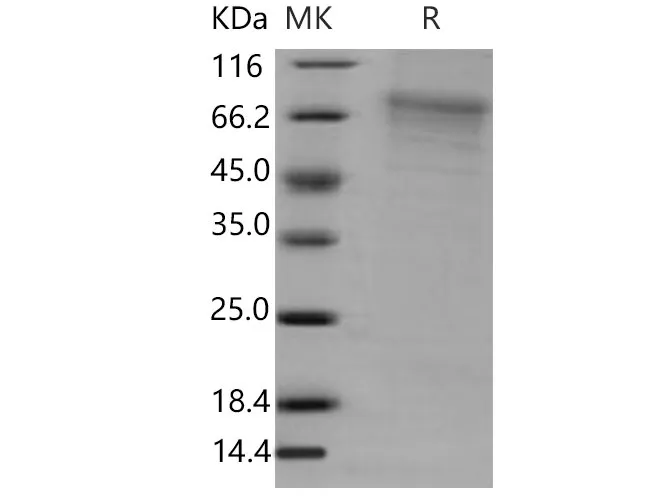Recombinant Mouse GFRA2/GFRα2/GDNFRB Protein (His Tag)
CAT:
763-PKSM040829
Size:
100 µg
Price:
Ask
- Availability: 24/48H Stock Items & 2 to 6 Weeks non Stock Items.
- Dry Ice Shipment: No




Recombinant Mouse GFRA2/GFRα2/GDNFRB Protein (His Tag)
- Background: GFRA2 is a member of the GDNF receptor family. It is a glycosylphosphatidylinositol(GPI)-linked cell surface receptor for both GDNF and NTN, and mediates activation of the RET tyrosine kinase receptor. GFRA2 is a potent survival factor for central and peripheral neurons, and is essential for the development of kidneys and the enteric nervous system. Glial cell line-derived neurotrophic factor (GDNF) and neurturin (NTN) are its binding ligand which are two structurally related, potent neurotrophic factors that play key roles in the control of neuron survival and differentiation. GDNF promotes the formation of a physical complex between GFRA/GDNFRa and the orphan tyrosin kinase receptor Ret, thereby inducing its tyrosine phosphorylation. The RET is a receptor tyrosine kinase representing the signal-transducing molecule of a multisubunit surface receptor complex for the GDNF, in which GFRA/GDNFRa acts as the ligand-binding component. Experiments have improved that GFRA2 genetic variants and age may play a role in Tardive dyskinesia (TD) susceptibility, but further work is required to confirm these findings.
- Synonyms: GFR alpha 2, GFR alpha-2, Gfra2
- CAS Number: 9000-83-3
- UniProt: O08842
- Accession Number: NP_032141.2
- Host: HEK293 Cells
- Origin Species: Mouse
- Tag: C-His
- Sequence: Met 1-Ser 441
- Purity: > 85 % as determined by reducing SDS-PAGE.
- Bioactivity: Not validated for activity
- Reconstitution: Please refer to the printed manual for detailed information.
- Molecular Weight: 75 kDa
- Shipping Conditions: This product is provided as lyophilized powder which is shipped with ice packs.
- Storage Conditions: Generally, lyophilized proteins are stable for up to 12 months when stored at -20 to -80°C. Reconstituted protein solution can be stored at 4-8°C for 2-7 days. Aliquots of reconstituted samples are stable at < -20°C for 3 months.
